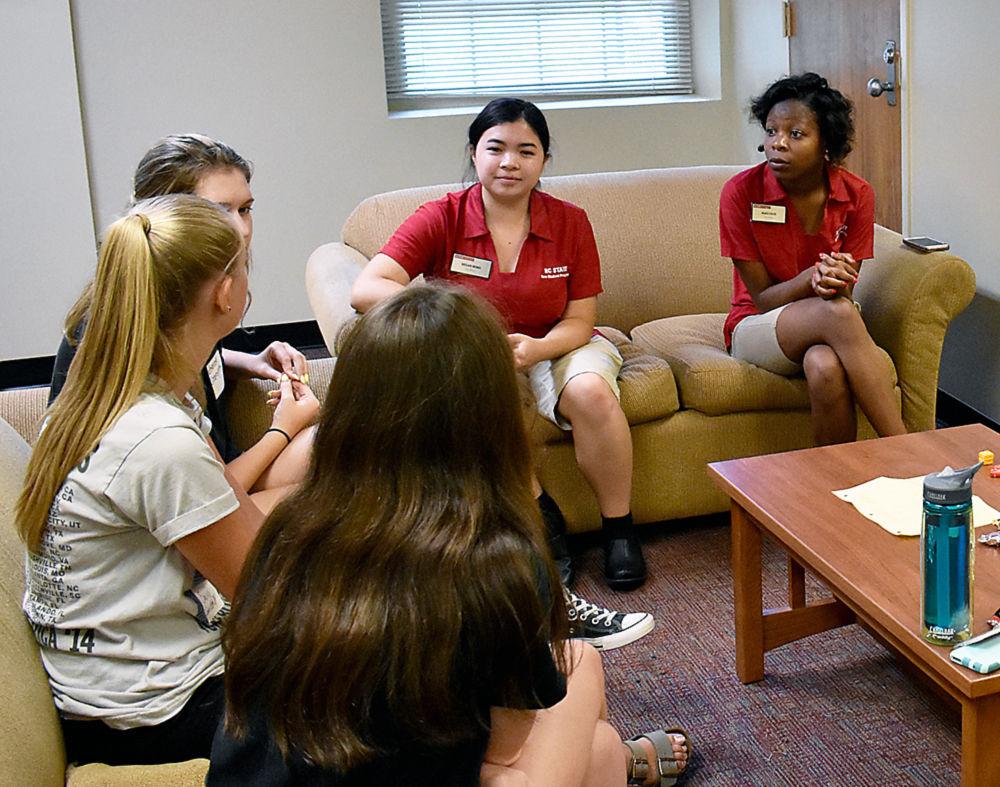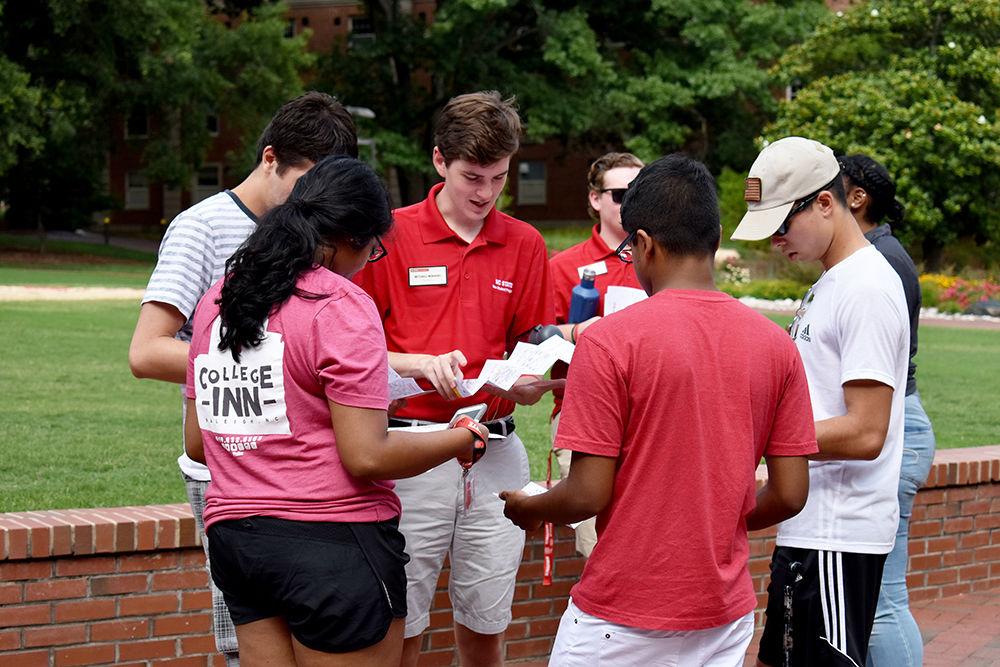Many first-year, transfer and international students have already moved to campus and are completing their first week of classes as NC State students as part of Summer Start, a program whose website states its intentions: “Preparing new students to succeed academically, professionally and personally through a smooth transition to NC State.”
“We want them to start realizing what they can be doing to be more successful,” said Michael Coombes, director of New Student Programs, when asked what he hopes students gain through their experience.
Another goal Coombes mentioned is for students to begin “getting comfortable navigating the social environment of the university.”
Summer Start students move onto campus in late June for summer session II, which lasts about six weeks. This is followed by a two-week break before the fall semester begins.
These students can take up to 8 credit hours of courses over summer session II, benefitting from smaller classes and more personal instruction from professors.
An optional summer course, USC 100: Transition to a Diverse Community, is offered to Summer Start students as well. Carly Edwards, assistant director of New Student Programs, describes it as a class that “offers students the opportunity to have dialogue and reflection around issues of diversity and inclusion.”
Summer Start participants are currently housed in Tucker Hall, which helps to foster a small, intimate college community for the summer. With events such as workshops and cookouts occurring on a weekly basis, these new students are empowered to make connections and experience college even before the fall semester begins.
Each student is assigned a mentor from a group of fellow students (second-year and older) who also live in Tucker and help guide students through the college experience.
Yussef Guerrab, a sophomore at NC State and former Summer Start participant, said that he wanted to be a mentor because of his positive experience last year with the program.
During his time at early college, Guerrab was taking more upper-level classes with older students, but Summer Start allowed him to meet students closer to his age.
“It’s a great way to make friends,” Guerrab said.
Guerrab also spoke highly of his Summer Start mentor; he appreciated being able to ask questions in an informal setting, as opposed to waiting to set up an appointment with an advisor. He highlighted how approachable and accessible his mentor was.
“He gave me great advice,” Guerrab said. “God bless his soul.”
Now, Guerrab is on the other side of the program. He described his job as helping students to “assimilate into the campus and basically get them up to speed with how NC State works.”
Guerrab said he wasn’t interested in the position for the sake of his resume and that he genuinely wants to be there. He wants to make a very large university seem smaller, so he’ll invite a girl sitting on the side at the cookout to play volleyball.
Nick Swiney, a current Summer Start participant and freshman baseball player, spoke about how the program would help alleviate his workload during the school year. He said that since games, practice and traveling consume a large part of an athlete’s schedule, coaches expect students to participate in Summer Start for the benefit of a reduced course load.
Swiney wants to be a sports broadcaster someday, so he is taking English and public speaking courses, all before the fall semester begins.
Summer Start has just begun, and to Guerrab, it’s not a strictly academic time on campus.
“It’s definitely more like a family-oriented type of thing,” Guerrab said.
Peer mentor Mitchell Moravec helps Summer START participants navigate through campus using an NC State campus map. Moravec was one of the many peer mentors who gave a tour to students during the Wolfpack Wondering event on Sunday, June 25. The event allowed students to see the buildings that their classes will be held in during summer session II.









